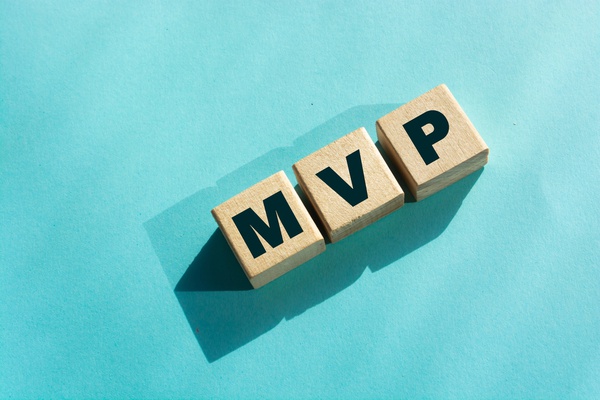It is estimated that by 2018 a mere 0.01 percent of mobile apps will be a financial success. That’s a frightening margin for failure.
There’s a variety of reasons why most startup apps fail. From poorly thought-out strategies and awful marketing to a lack of capital and badly built user experience. But the main reason that most apps fail to make an impact on the market is that the developers ignored the hard questions at the beginning.
Below you’ll find out what most apps fail to do and the questions you should be asking yourself to avoid failure. This guide is intended to help you analyze your uber-like app beat the odds to become a hit with consumers.
#1 Start at the Beginning
It’s easy to get carried away. You imagine the press interviews, the million dollar offers to buy your platform. It’s difficult to stop and start ask yourself the fundamentals. It starts with asking yourself why, or as Simon Sinek puts it: “start with why” to discover “the purpose, cause, or belief that inspires you to do what you do”. If this all sounds a little too philosophical then don’t be alarmed. We’re not asking you to reevaluate your entire existence, just the fundamental purpose of your app. Why are you building this app.
Most people are so involved and locked into their app that they assume their ideas is outstanding. The numbers tell another, the numbers show that most people are wrong. Quite simply, they don’t ask themselves why they are building it. It’s crucial to understand why you want to do what are you doing.
So start of with the hard hitting - why are you building this app?

#2 What Wrong Are You Putting Right?
This question is a continuation that flows from the first “why?” question and allows you now to focus your app on what it needs to do. It needs to be built in such a way that it rights a wrong. Your app needs to resolve the inconvenience that you set out to fix.
Always keep in mind the big issue you’re trying to resolve by building your sharing economy app. Too many startups take their eyes off the ball by getting caught up in the day-to-day of building a product.
Your app must add value by improving the lives of consumers.
#3 Understand the Competition
Most of the problems we face today are age-old and most of the solutions have already been thought of. Originality doesn’t have to mean inventing the lightbulb, it is putting your twist on something that exists.
“True originality consists not in a new manner but in a new vision.” - Edith Wharton
Most apps add tweaks to existing products that improve our day to day lives. Unless you come up with a way of producing energy from nothing, it’s likely that your solution already exists. What you’re doing is trying to add value to that solution.
The best way of adding valuing is understanding the pros and cons of the current solution. In other words: do your market research. Analyze the current market and the solutions that exist so you are in a better position to offer something better.
#4 Do the Math
Besides from analyzing the competition, you need to do some number crunching. Scope out the target market to get a clear understanding of just how big it is and the profits you stand to make if all goes well.
#5 Meet Your Public

In order to reach the consumers in your market you need to get to know them. Create user personas for mobile app to get a clearer picture of who your public is. You need to define clients groups and write their portraits so you can reach them.
#6 Define What Makes you Different
Define what gives your startup app an edge over the competition and helps it stand out from the rest. There are four main app benefits it can provide its user; it can be convenient for the user (Uber’s nearest driver); it can be more reliable (in-app user reviews); it can be faster (you don’t need to make a phone call); and it can be cheaper. Your app should benefits with consumer needs. Too many apps provide “solutions” or “benefits” that users really don’t need or want. Analyze your user personas and talk to users to find out what they really want.
#7 Define your Business Model

The majority of apps on the market are not sustainable. Your app has to have a clear path to monetization which means you need to figure out how your app will bring in returns to cover staff, office and marketing expenses. You should determine what volume of sales you will need to cover all of your day-to-day costs and the capital you will need for rainy days, expansion and R&D.
Free apps like Uber makes money by charging a commission for every journey. Other free apps make money by providing a basic free version and charging for upgrades, in-app purchases, and of course ads and sponsorship. Perhaps the most straightforward path to monetization (but without its share of limitations) are paid for apps.
#8 Minimum Viable Product
Launching a Minimum Viable Product or MVP is a great way of getting early feedback and increase the chances of success for your new app. This post explains in further detail why a MVP is a good idea when launching an app and how it can reduce the risk involved in launching mobile apps.
#9 Choose a Developer
The final step is choosing the right mobile app developer. They are three main candidates that you should consider to build your app; freelancers, a large app development company, and a mid-size development company. All come with their particular pros and cons which we go through below.
Hire freelancers and manage them yourselves
Advantages:
- Could be cheaper.
- They can be flexible to meet your needs.
Disadvantages
- The project management side of building an app can be very time-consuming and will reduce the time you need to put on sales, company development and brand awareness.
- Without experience you can hire the wrong people and go well over-budget.
- You never know what a developer’s real qualifications are and it’s hard to establish just how good they really are.
- Not so reliable. Freelancers can drop off the map in a second.
A big company
Advantages:
- A finely tuned process with delivery processes means that the launch will not be delayed and there will be few surprises.
- It’s likely that they’ve done something similar before.
- They value their reputation so they are less likely to burn you.
- Can afford having narrow specialists like growth hackers, marketing analysts.
- Can provide you with everything you need if costs are not an issue.
Disadvantages:
- It may cost you a fortune.
- Your product runs the risk of becoming just “one of many small projects” in the corporation and not get the attention to detail it needs.
- Are not very flexible. You either work within their rules or take your business elsewhere.
Mid-sized company
Advantages:
- Experience in development and processes.
- Affordable price.
- They do their best to get more referrals from existing clients.
- Flexible in terms of working processes, negotiations, changing the course of the development and partnerships.
Disadvantages:
- Every project usually has its own particularities and they can lack experience in some fields.
- Development can take a longer time than they expected or told you it would.





